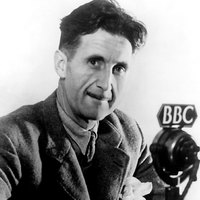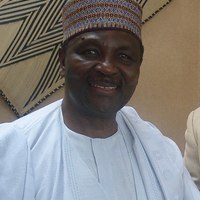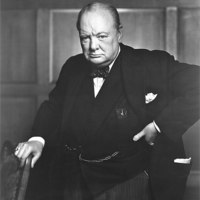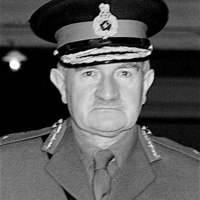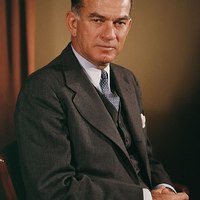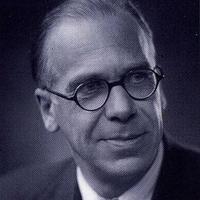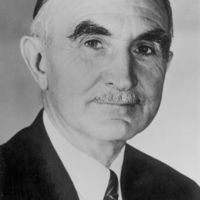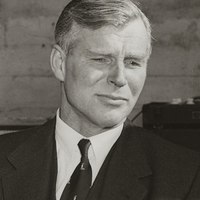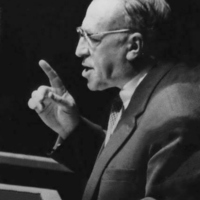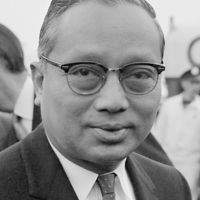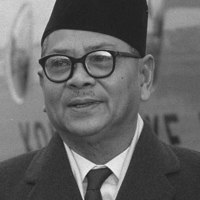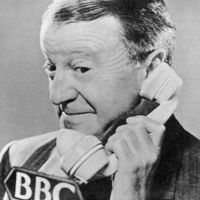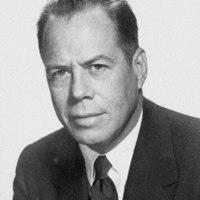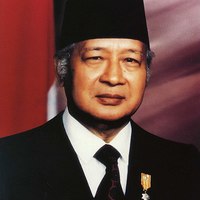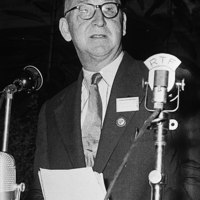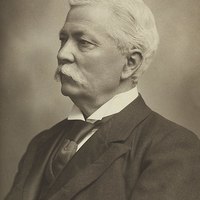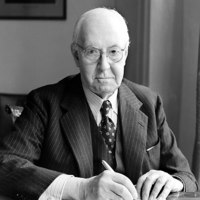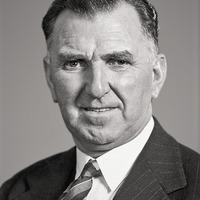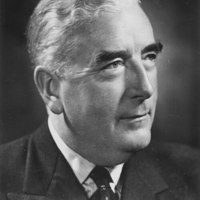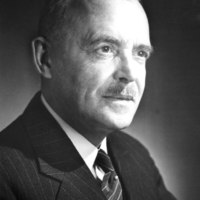Written Archive
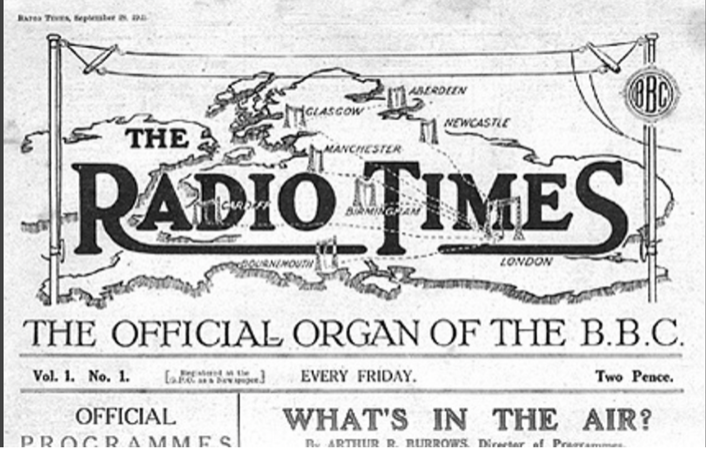
In this section, we provide original correspondence, brochures and other documents related to the establishment of the BBC's operations in South East Asia. All the scans have been vetted for Public use by the BBC Written Archives at Caversham, Reading. but retains BBC Written Archives Copyright.
To search the sound archive, go here.
Search
838 items
-
Eric Arthur Blair (25 June 1903 – 21 January 1950) was an English novelist, poet, essayist, journalist, and critic who wrote under the pen name of George Orwell. His work is characterised by lucid prose, social criticism, opposition to totalitarianism, and support of democratic socialism. Orwell produced literary criticism, poetry, fiction, and polemical journalism. He is known for the allegorical novella Animal Farm (1945) and the dystopian novel Nineteen Eighty-Four (1949). His non-fiction works, including The Road to Wigan Pier (1937), documenting his experience of working-class life in the industrial north of England, and Homage to Catalonia (1938), an account of his experiences soldiering for the Republican faction of the Spanish Civil War (1936–1939), are as critically respected as his essays on politics, literature, language and culture. (Wikipedia) More »Person
-
Yakubu Dan-Yumma "Jack" Gowon (born 19 October 1934) is a retired Nigerian army general and military leader. As head of state of Nigeria, Gowon presided over a controversial Nigerian Civil War and delivered the famous "no victor, no vanquished" speech at the war's end to promote healing and reconciliation. The Nigerian Civil War is listed as one of the deadliest in modern history, with some accusing Gowon of crimes against humanity and genocide. Gowon maintains that he committed no wrongdoing during the war and that his leadership saved the country.An Anglican Christian from a minority Ngas family of Northern Nigeria, Gowon is a Nigerian nationalist, and a believer in the unity and oneness of Nigeria. Gowon's rise to power followed the July 1966 counter-coup and cemented military rule in Nigeria. Consequently, Gowon served for the longest continuous period as head of state of Nigeria, ruling for almost nine years until his overthrow in the coup d'état of 1975 by Brigadier Murtala Mohammed. (Wikipedia) More »Person
-
Sir Winston Leonard Spencer Churchill (30 November 1874 – 24 January 1965) was a British statesman, soldier, and writer who twice served as Prime Minister of the United Kingdom, from 1940 to 1945 during the Second World War, and again from 1951 to 1955. Apart from two years between 1922 and 1924, he was a Member of Parliament (MP) from 1900 to 1964 and represented a total of five constituencies. Ideologically an adherent to economic liberalism and imperialism, he was for most of his career a member of the Conservative Party, which he led from 1940 to 1955. He was a member of the Liberal Party from 1904 to 1924. Of mixed English and American parentage, Churchill was born in Oxfordshire into the wealthy, aristocratic Spencer family. He joined the British Army in 1895 and saw action in British India, the Mahdist War (also known as the Anglo-Sudan War), and the Second Boer War, later gaining fame as a war correspondent and writing books about his campaigns. Elected a Conservative MP in 1900, he defected to the Liberals in 1904. In H. H. Asquith's Liberal government, Churchill served as President of the Board of Trade and Home Secretary, championing prison reform and workers' social security. As First Lord of the Admiralty during the First World War, he oversaw the Gallipoli campaign, but after it proved a disaster, he was demoted to Chancellor of the Duchy of Lancaster. He resigned in November 1915 and joined the Royal Scots Fusiliers on the Western Front for six months. In 1917, he returned to government under David Lloyd George and served successively as Minister of Munitions, Secretary of State for War, Secretary of State for Air, and Secretary of State for the Colonies, overseeing the Anglo-Irish Treaty and British foreign policy in the Middle East. After two years out of Parliament, he served as Chancellor of the Exchequer in Stanley Baldwin's Conservative government, returning the pound sterling in 1925 to the gold standard at its pre-war parity, a move widely seen as creating deflationary pressure and depressing the UK economy. Out of government during his so-called "wilderness years" in the 1930s, Churchill took the lead in calling for British rearmament to counter the growing threat of militarism in Nazi Germany. At the outbreak of the Second World War he was re-appointed First Lord of the Admiralty. In May 1940, he became prime minister, succeeding Neville Chamberlain. Churchill formed a national government and oversaw British involvement in the Allied war effort against the Axis powers, resulting in victory in 1945. After the Conservatives' defeat in the 1945 general election, he became Leader of the Opposition. Amid the developing Cold War with the Soviet Union, he publicly warned of an "iron curtain" of Soviet influence in Europe and promoted European unity. Between his terms as prime minister, he wrote several books recounting his experience during the war. He was awarded the Nobel Prize for Literature in 1953. He lost the 1950 election but was returned to office in 1951. His second term was preoccupied with foreign affairs, especially Anglo-American relations and preservation of what remained of the British Empire with India now no longer part of it. Domestically, his government emphasised housebuilding and completed the development of a nuclear weapon (begun by his predecessor). In declining health, Churchill resigned as prime minister in 1955, remaining an MP until 1964. Upon his death in 1965, he was given a state funeral. One of the 20th century's most significant figures, Churchill remains popular in the UK and the rest of the Anglosphere where he is generally viewed as a victorious wartime leader who played an important role in defending liberal democracy against the spread of fascism. While he has been criticised for his views on race and empire alongside some of his wartime decisions, historians often rank Churchill as the greatest prime minister in British history. (Wikipedia) More »Person
-
Field Marshal William Joseph Slim, 1st Viscount Slim, KG, GCB, GCMG, GCVO, GBE, DSO, MC, PC (6 August 1891 – 14 December 1970), usually known as Bill Slim,[1] was a British military commander and the 13th Governor-General of Australia. (Wikipedia) More »Person
-
James William Fulbright (April 9, 1905 – February 9, 1995) was an American politician, academic, and statesman who represented Arkansas in the United States Senate from 1945 until his resignation in 1974. As of 2023, Fulbright is the longest serving chairman in the history of the United States Senate Committee on Foreign Relations. He is best known for his strong multilateralist positions on international issues, opposition to American involvement in the Vietnam War, and the creation of the international fellowship program bearing his name, the Fulbright Program. Fulbright was an admirer of Woodrow Wilson and an avowed anglophile. He was an early advocate for American entry into World War II and aid to Great Britain, first as a college professor and then as an elected member of the U.S. House of Representatives, where he authored the Fulbright Resolution expressing support for international peacekeeping initiatives and American entry into the United Nations. After joining the Senate, Fulbright expressed support for Europeanism and the formation of a federal European union. He envisioned the Cold War as a struggle between nations – the United States and imperialist Russia – rather than ideologies. He therefore dismissed Asia as a peripheral theater of the conflict, focusing on containment of Soviet expansion into Central and Eastern Europe. He also stressed the possibility of nuclear annihilation, preferring political solutions over military solutions to Soviet aggression. After the Cuban Missile Crisis, his position moderated further to one of détente. His political stances and powerful position as Chairman of the Senate Foreign Relations Committee made him one of the most visible critics of American involvement in the Vietnam War. Although he was persuaded by President Lyndon Johnson to sponsor the Gulf of Tonkin resolution in 1964, his relationship with the President soured after the 1965 U.S. bombing of Pleiku and Fulbright's opposition to the war in Vietnam took root. Beginning in 1966, he chaired high-profile hearings investigating the conduct and progress of the war, which may have influenced the eventual American withdrawal. On domestic issues, Fulbright was a Southern Democrat and signatory to the Southern Manifesto. Fulbright also opposed the anti-Communist crusades of Joseph McCarthy and the similar investigations by the House Un-American Activities Committee. (Wikipedia) More »Person
-
William Alwyn (born William Alwyn Smith; 7 November 1905 – 11 September 1985), was an English composer, conductor, and music teacher. (Wikipedia) More »Person
-
Wilfred De'Ath (/diˈɑːt/; 28 July 1937 – 19 February 2020) was a British author and journalist who worked for the BBC as a radio producer in the 1960s and 1970s and wrote a column in The Oldie. (Wikipedia) More »Person
-
Wayne Lyman Morse (October 20, 1900 – July 22, 1974) was an American attorney and United States Senator from Oregon. Morse is well known for opposing the Democratic Party’s leadership and for his opposition to the Vietnam War on constitutional grounds.Born in Madison, Wisconsin, and educated at the University of Wisconsin and the University of Minnesota Law School, Morse moved to Oregon in 1930 and began teaching at the University of Oregon School of Law. During World War II, he was elected to the U.S. Senate as a Republican; he became an Independent after Dwight D. Eisenhower's election to the presidency in 1952. While an independent, he set a record for performing the third-longest one-person filibuster in the history of the Senate. Morse joined the Democratic Party in February 1955, and was reelected twice while a member of that party. Morse made a brief run for the Democratic Party's presidential nomination in 1960. In 1964, Morse was one of two senators to oppose the later-to-become-controversial Gulf of Tonkin Resolution. It authorized the president to take military action in Vietnam without a declaration of war. He continued to speak out against the war in the ensuing years, and lost his 1968 bid for reelection to Bob Packwood, who criticized his strong opposition to the war. Morse made two more bids for reelection to the Senate before his death in 1974. (Wikipedia) More »Person
-
Sir Vivian Ernest Fuchs ( FUUKS; 11 February 1908 – 11 November 1999) was an English scientist-explorer and expedition organizer. He led the Commonwealth Trans-Antarctic Expedition which reached the South Pole overland in 1958. (Wikipedia) More »Person
-
Lewis John Wynford Vaughan-Thomas (né Thomas) (15 August 1908 – 4 February 1987) was a Welsh newspaper journalist and radio and television broadcaster. In later life he took the name Vaughan-Thomas after his father. (Wikipedia) More »Person
-
Valerian Aleksandrovich Zorin (Russian: Валериан Александрович Зорин; 14 January 1902 – 14 January 1986) was a Soviet diplomat best remembered for his famous confrontation with Adlai Stevenson on 25 October 1962, during the Cuban Missile Crisis. (Wikipedia) More »Person
-
Thant (Burmese: သန့်; MLCTS: san. [θa̰ɰ̃]; 22 January 1909 – 25 November 1974), known honorifically as U Thant (), was a Burmese diplomat and the third secretary-general of the United Nations from 1961 to 1971, the first non-Scandinavian to hold the position. He held the office for a record 10 years and one month.A native of Pantanaw, Thant was educated at the National High School and at Rangoon University. In the days of tense political climate in Burma, he held moderate views positioning himself between fervent nationalists and British loyalists. He was a close friend of Burma's first Prime Minister U Nu and served in various positions in Nu's cabinet from 1948 to 1961. Thant had a calm and unassuming demeanor that won his colleagues' respect.He was appointed Secretary-General in 1961, six weeks after his predecessor, Dag Hammarskjöld, had died in an air crash. In his first term, Thant facilitated negotiations between U.S. President John F. Kennedy and Soviet Premier Nikita Khrushchev during the Cuban Missile Crisis of 1962, helping to avert a global catastrophe. Later, in December that year, Thant ordered Operation Grandslam, which ended a secessionist insurgency in Congo. He was reappointed as Secretary-General on 2 December 1966, by a unanimous vote of the Security Council. During his second term Thant was well known for publicly criticizing U.S. conduct in the Vietnam War. He oversaw the entry of several newly independent African and Asian states into the UN. He refused to serve a third term, and retired in 1971. Thant died of lung cancer in 1974. A devout Buddhist and the foremost Burmese diplomat on the international stage, he was widely admired and held in great respect by the Burmese populace. When the military government refused him any honours, riots erupted in Rangoon; these were violently crushed by the government, leaving scores of casualties. (Wikipedia) More »Person
-
Tunku Abdul Rahman Putra Al-Haj ibni Almarhum Sultan Abdul Hamid Halim Shah (Jawi: تونكو عبد الرحمن ڤوترا الحاج ابن سلطان عبد الحميد حليم شاه; 8 February 1903 – 6 December 1990) was a Malaysian statesman and lawyer who served as the first prime minister of Malaysia and the head of government of its predecessor states from 1955 to 1970. He was the first chief minister of the Federation of Malaya from 1955 to 1957. He supervised the independence process that culminated on 31 August 1957. As an independent Malaysia's first prime minister, he dominated the country's politics for the next 13 years. More »Person
-
Thomas Reginald Handley (17 January 1892 – 9 January 1949) was an English comedian, best known for the BBC radio programme It's That Man Again ("ITMA") which ran between 1939 and 1949. (Wikipedia) More »Person
-
Major Tom Harnett Harrisson, DSO OBE (26 September 1911 – 16 January 1976) was a British polymath. In the course of his life he was an ornithologist, explorer, journalist, broadcaster, soldier, guerrilla, ethnologist, museum curator, archaeologist, documentarian, film-maker, conservationist and writer. Although often described as an anthropologist, and sometimes referred to as the "Barefoot Anthropologist", his degree studies at University of Cambridge, before he left to live in Oxford, were in natural sciences. He was a founder of the social observation organisation Mass-Observation. He conducted ornithological and anthropological research in Sarawak (1932) and the New Hebrides (1933–35), spent much of his life in Borneo (mainly Sarawak) and finished up in the US, the UK and France, before dying in a road accident in Thailand. (Wikipedia) More »Person
-
Thomas Henry Kuchel ( KEE-kəl; August 15, 1910 – November 21, 1994) was an American politician. A moderate Republican, he served as a US Senator from California from 1953 to 1969 and was the minority whip in the Senate, where he was the co-manager on the floor for the Civil Rights Act of 1964 and the Voting Rights Act of 1965. Kuchel voted in favor of the Civil Rights Acts of 1957, 1960, and 1964, as well as the 24th Amendment to the U.S. Constitution, the Voting Rights Act of 1965, and the confirmation of Thurgood Marshall to the U.S. Supreme Court, while Kuchel did not vote on the Civil Rights Act of 1968. (Wikipedia) More »Person
-
Suharto ( soo-HAR-toh, Indonesian: [suˈharto] ; 8 June 1921 – 27 January 2008) was an Indonesian military officer and politician, who served as the second and the longest serving president of Indonesia. Widely regarded as a military dictator by international observers, Suharto led Indonesia as an authoritarian regime from the fall of his predecessor Sukarno in 1967 until his resignation in 1998 following nationwide unrest. His 32-year dictatorship is considered one of the most brutal and corrupt of the 20th century.Suharto was born in the small village of Kemusuk, in the Godean area near the city of Yogyakarta, during the Dutch colonial era. He grew up in humble circumstances. His Javanese Muslim parents divorced not long after his birth, and he lived with foster parents for much of his childhood. During the Japanese occupation era, Suharto served in the Japanese-organized Indonesian security forces. During Indonesia's independence struggle, he joined the newly formed Indonesian Army. There, Suharto rose to the rank of major general some time after full Indonesian independence was achieved. An attempted coup on 30 September and 1 October 1965 was countered by Suharto-led troops. According to the official history made by the army, this attempt was backed by the Communist Party of Indonesia (PKI). The army subsequently led a nationwide violent anti-communist purge and Suharto wrested power from Indonesia's founding president, Sukarno. He was appointed acting president in 1967 and elected president the following year. He then mounted a social campaign known as "de-Sukarnoization" to reduce the former president's influence. Suharto ordered an invasion of East Timor in 1975, followed by a deadly 23-year occupation of the country. Support for Suharto's presidency was active throughout the 1970s and 1980s. By the 1990s, the New Order's increasing authoritarianism and widespread corruption were a source of discontent and, following the 1997 Asian financial crisis which led to widespread unrest, he resigned in May 1998. Suharto died in January 2008 and was given a state funeral. Under his "New Order" administration, Suharto constructed a strong, centralised and military-dominated government. What started as an oligarchic military dictatorship evolved into a personalistic authoritarian regime centered around Suharto. An ability to maintain stability over a sprawling and diverse Indonesia and an avowedly anti-communist stance won him the economic and diplomatic support of the West during the Cold War. For most of his presidency, Indonesia experienced significant industrialisation, economic growth, and improved levels of educational attainment. As a result, he was given the title "Father of Development". According to Transparency International, Suharto was one of the most corrupt leaders in modern history, having embezzled an alleged US$15–35 billion during his rule.Suharto remains a controversial and divisive figure within the Indonesian general public. Many Indonesians have praised his New Order leadership for its economic development, rapid industrialization, and perceived political stability, while others have denounced his authoritarian rule and rampant corruption. Plans to award the status of National Hero to Suharto are being considered by the Indonesian government and have been debated vigorously in Indonesia. (Wikipedia) More »Person
-
Solon (Greek: Σόλων; c. 630 – c. 560 BC) was an archaic Athenian statesman, lawmaker, political philosopher, and poet. He is one of the Seven Sages of Greece and credited with laying the foundations for Athenian democracy. Solon's efforts to legislate against political, economic and moral decline resulted in his constitutional reform overturning most of Draco's laws. Solon's reforms included debt relief later known and celebrated among Athenians as the Seisachtheia (shaking off of burdens). He is described by Aristotle in the Athenian Constitution as "the first people's champion." Demosthenes credited Solon's reforms with starting a golden age. Modern knowledge of Solon is limited by the fact that his works only survive in fragments and appear to feature interpolations by later authors. It is further limited by the general paucity of documentary and archaeological evidence covering Athens in the early 6th century BC.Ancient authors such as Philo of Alexandria, Herodotus, and Plutarch are the main sources, but wrote about Solon long after his death. Fourth-century BC orators, such as Aeschines, tended to attribute to Solon all the laws of their own, much later times. (Wikipedia) More »Person
-
Sir John Douglas Cockcroft (27 May 1897 – 18 September 1967) was a British physicist who shared with Ernest Walton the Nobel Prize in Physics in 1951 for splitting the atomic nucleus, and was instrumental in the development of nuclear power. After service on the Western Front with the Royal Field Artillery during the Great War, Cockcroft studied electrical engineering at Manchester Municipal College of Technology whilst he was an apprentice at Metropolitan Vickers Trafford Park and was also a member of their research staff. He then won a scholarship to St. John's College, Cambridge, where he sat the tripos exam in June 1924, becoming a wrangler. Ernest Rutherford accepted Cockcroft as a research student at the Cavendish Laboratory, and Cockcroft completed his doctorate under Rutherford's supervision in 1928. With Ernest Walton and Mark Oliphant he built what became known as a Cockcroft–Walton generator. Cockcroft and Walton used this to perform the first artificial disintegration of an atomic nucleus, a feat popularly known as splitting the atom. During the Second World War Cockcroft became Assistant Director of Scientific Research in the Ministry of Supply, working on radar. He was also a member of the committee formed to handle issues arising from the Frisch–Peierls memorandum, which calculated that an atomic bomb could be technically feasible, and of the MAUD Committee which succeeded it. In 1940, as part of the Tizard Mission, he shared British technology with his counterparts in the United States. Later in the war, the fruits of the Tizard Mission came back to Britain in the form of the SCR-584 radar set and the proximity fuze, which were used to help defeat the V-1 flying bomb. In May 1944, he became director of the Montreal Laboratory, and oversaw the development of the ZEEP and NRX reactors, and the creation of the Chalk River Laboratories. After the war Cockcroft became the director of the Atomic Energy Research Establishment (AERE) at Harwell, where the low-powered, graphite-moderated GLEEP became the first nuclear reactor to operate in western Europe when it was started on 15 August 1947. This was followed by the British Experimental Pile 0 (BEPO) in 1948. Harwell was involved in the design of the reactors and the chemical separation plant at Windscale. Under his direction it took part in frontier fusion research, including the ZETA program. His insistence that the chimney stacks of the Windscale reactors be fitted with filters was mocked as Cockcroft's Folly until the core of one of the reactors ignited and released radionuclides during the Windscale fire of 1957. From 1959 to 1967, he was the first Master of Churchill College, Cambridge. He was also chancellor of the Australian National University in Canberra from 1961 to 1965. (Wikipedia) More »Person
-
Sir Henry Morton Stanley GCB (born John Rowlands; 28 January 1841 – 10 May 1904) was a Welsh-American[1][2][a] explorer, journalist, soldier, colonial administrator, author and politician who was famous for his exploration of Central Africa and his search for missionary and explorer David Livingstone. Besides his discovery of Livingstone, he is mainly known for his search for the sources of the Nile and Congo rivers, the work he undertook as an agent of King Leopold II of the Belgians which enabled the occupation of the Congo Basin region, and his command of the Emin Pasha Relief Expedition. He was knighted in 1897, and served in Parliament as a Liberal Unionist member for Lambeth North from 1895 to 1900. (Wikipedia) More »Person
-
Sir Henry Hallett Dale (9 June 1875 – 23 July 1968) was an English pharmacologist and physiologist. For his study of acetylcholine as agent in the chemical transmission of nerve pulses (neurotransmission) he shared the 1936 Nobel Prize in Physiology or Medicine with Otto Loewi. (Wikipedia) More »Person
-
Seymon K. Tsarapkin (1905/1906 – 1984) was a Soviet diplomat. He was involved in negotiations over the 1963 Partial Nuclear Test Ban Treaty, worked in the United Nations and held various other diplomatic posts. (Wikipedia) More »Person
-
She was the first woman to receive the Queen's Gold Medal for Poetry in 1955, and was appointed CBE in 1979 to honour her many contributions to English literature. In 1974, she was named a "Companion of Literature", the highest honour given by the Royal Society of Literature.[1] More »Person
-
Sir Sidney George Holland (18 October 1893 – 5 August 1961) was a New Zealand politician who served as the 25th prime minister of New Zealand from 13 December 1949 to 20 September 1957. He was instrumental in the creation and consolidation of the New Zealand National Party, which was to dominate New Zealand politics for much of the second half of the 20th century. Holland was elected to parliament in 1935, and became the second Leader of the National Party, and Leader of the Opposition, in 1940. He served briefly (1942) in a war cabinet but thereafter attacked the Labour government for its interventionist economic policies. Holland led the National Party to its first election victory in 1949. His National government implemented moderate economic reforms, dismantling many state controls. Holland's government also undertook constitutional change in 1950, by abolishing the Legislative Council, the upper house of parliament, on the grounds that it was ineffectual. In 1951, Holland, having confronted locked out dockers and coal miners intent on what he called "industrial anarchy", called a snap election and was re-elected Prime Minister. In its second term, the National government signed the ANZUS defence agreement with Australia and the United States. Holland led his party to a third consecutive victory in 1954. Following ill health in 1957, Holland stepped down as Prime Minister to be replaced by Keith Holyoake. (Wikipedia) More »Person
-
Sir Robert Gordon Menzies (20 December 1894 – 15 May 1978) was an Australian politician and lawyer who served as the 12th prime minister of Australia from 1939 to 1941 and 1949 to 1966. He held office as the leader of the United Australia Party (UAP) in his first term, and subsequently as the inaugural leader of the Liberal Party of Australia, which he was responsible for establishing and defining in policy and political outreach. He is the longest-serving prime minister in Australian history. Menzies studied law at the University of Melbourne and became one of Melbourne's leading lawyers. He was Deputy Premier of Victoria from 1932 to 1934, and then transferred to Federal Parliament, subsequently becoming Attorney-General of Australia and Minister for Industry in the government of Joseph Lyons. In April 1939, following Lyons's death, Menzies was elected leader of the United Australia Party (UAP) and sworn in as Prime Minister. He authorised Australia's entry into World War II in September 1939, and spent four months in England to participate in meetings of Churchill's war cabinet. On his return to Australia in August 1941, Menzies found that he had lost the support of his party and consequently resigned as Prime Minister. He subsequently helped to create the new Liberal Party, and was elected its inaugural leader in August 1945. At the 1949 federal election, Menzies led the Liberal–Country coalition to victory and returned as prime minister. His appeal to the home and family, promoted via reassuring radio talks, matched the national zeitgeist as the economy grew and middle-class values prevailed; the Australian Labor Party's support had also been eroded by Cold War scares. After 1955, his government also received support from the Democratic Labour Party, a breakaway group from the Labor Party. Menzies won seven consecutive elections during his second term, eventually retiring as prime minister in January 1966. Despite the failures of his first administration, his government is remembered for its development of Australia's capital city of Canberra, its expanded post-war immigration scheme, emphasis on higher education, and national security policies, which saw Australia contribute troops to the Korean War, the Malayan Emergency, the Indonesia–Malaysia confrontation, and the Vietnam War. (Wikipedia) More »Person
-
Louis Stephen St. Laurent (Saint-Laurent or St-Laurent in French, baptized Louis-Étienne St-Laurent; February 1, 1882 – July 25, 1973) was a Canadian lawyer and politician who served as the 12th prime minister of Canada from 1948 to 1957. Born and raised in southeastern Quebec, St. Laurent was a leading lawyer and a supporter of the Liberal Party of Canada. In December 1941, he entered politics as minister of justice under Prime Minister William Lyon Mackenzie King. In February 1942, he won a by-election in the riding of Quebec East. In September 1946, St. Laurent became secretary of state for external affairs and served in that post until two years later, when he became leader of the Liberal Party and prime minister, succeeding King who retired. St. Laurent carried the party to back-to-back landslide majority governments in the federal elections of 1949 and 1953. The second French Canadian to hold the office, St. Laurent strongly advocated against communism and was an enthusiastic proponent of Canada joining NATO in 1949 to fight the spread of the ideology. His government also contributed troops to the Korean War. At home, St. Laurent's government introduced the registered retirement savings plan (RRSP) and oversaw the construction of the Trans-Canada Highway, St. Lawrence Seaway, and Trans-Canada Pipeline. St. Laurent earned the nickname "Uncle Louis" as he was popular among the general public throughout his tenure, and the popularity of his government led many to predict that he would easily win the 1957 federal election. However, his decision to rush the 1956 debate on the Trans-Canada Pipeline by invoking closure led some to believe that the Liberals had become arrogant from their two decades in power, and in a major upset, the party was narrowly defeated by John Diefenbaker's Progressive Conservatives, ending nearly 22 years of Liberal rule. Shortly after his defeat, St. Laurent retired from politics and returned to his law practice. He is ranked highly among analysts, not least because of his progressive programs and fiscally responsible policies that helped shape post-war Canada. According to historian Donald Creighton, he was an "eminently moderate, cautious...man...and a strong Canadian nationalist." (Wikipedia) More »Person

